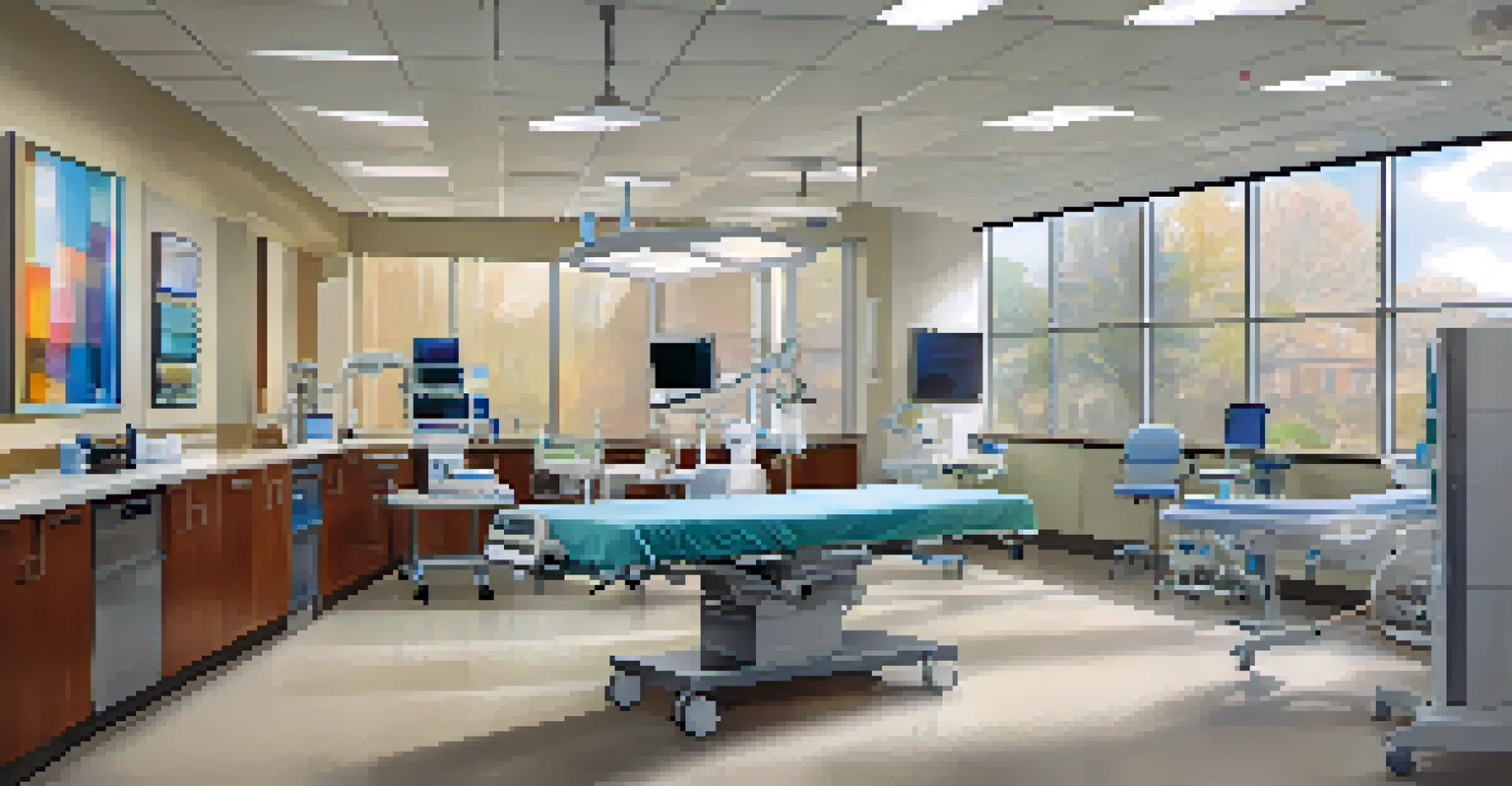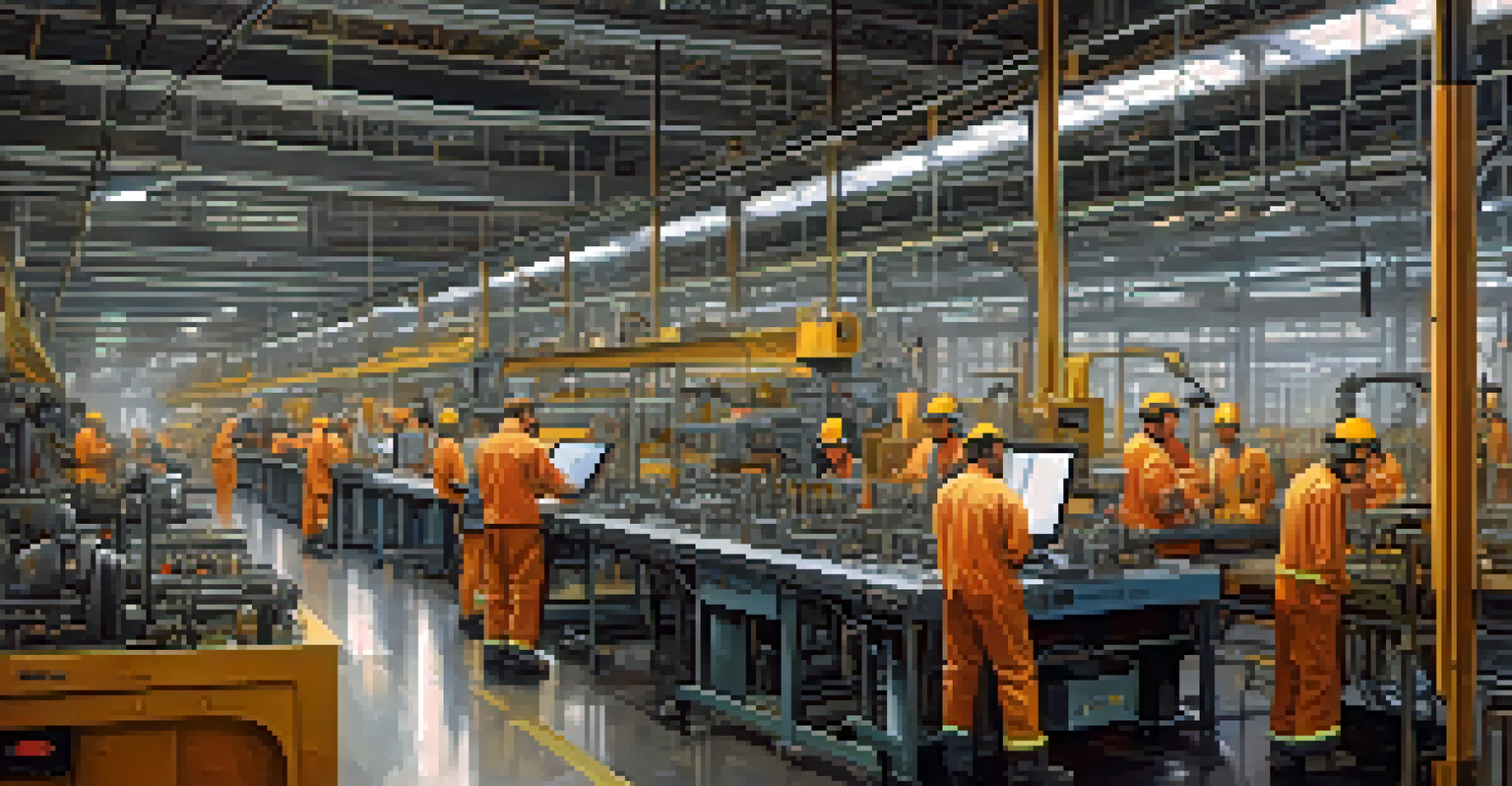St. Louis Economic Overview: Key Industries Driving Growth

Introduction to St. Louis's Economic Landscape
St. Louis, Missouri, is a vibrant city with a rich economic tapestry. Known for its iconic Gateway Arch, the city is not just a historical landmark but a growing hub for various industries. Over the years, St. Louis has transformed into a focal point for innovation and economic development, attracting businesses and talent alike.
The best way to predict the future is to create it.
The city's location at the confluence of several major highways and the Mississippi River makes it a strategic point for commerce. This accessibility has played a crucial role in shaping its economic landscape. From agriculture to technology, St. Louis's economy is diverse and continually evolving.
As we delve into the key industries that are driving growth, it's important to understand how they interact and contribute to the overall economic health of the region. Each sector not only supports job creation but also fosters community development and innovation.
Healthcare: A Pillar of St. Louis's Economy
The healthcare sector in St. Louis is a powerhouse, employing thousands and contributing significantly to the local economy. With renowned institutions like Washington University and Barnes-Jewish Hospital, the city is a leader in medical research and healthcare services. This not only enhances the quality of care but also attracts professionals from around the nation.

St. Louis is home to various biotech and pharmaceutical companies that are making strides in medical advancements. These companies benefit from collaborations with academic institutions, creating an ecosystem that fosters innovation. The emphasis on health and wellness has led to increased investments in this sector.
St. Louis Thrives on Economic Diversity
The city's economy is bolstered by key sectors like healthcare, technology, and manufacturing, each contributing to growth and innovation.
Moreover, the growth of telemedicine and health tech startups has further transformed the landscape. This evolution showcases how St. Louis is adapting to modern healthcare needs, ensuring that it remains at the forefront of medical innovation.
Manufacturing: A Historic Yet Dynamic Sector
Manufacturing has long been a cornerstone of St. Louis's economy, dating back to its early days as a trade hub. Today, it continues to thrive, with a focus on advanced manufacturing techniques such as automation and robotics. This shift has not only increased efficiency but also created a demand for a skilled workforce.
Innovation distinguishes between a leader and a follower.
Companies like Boeing and Emerson Electric have a significant presence in the region, contributing to both job creation and economic stability. These corporations are investing in sustainable practices, further enhancing St. Louis's reputation as a forward-thinking manufacturing center.
Additionally, the rise of small and medium-sized manufacturing enterprises (SMEs) is noteworthy. These businesses often focus on niche markets, bringing innovation and diversity to the sector, and proving that manufacturing in St. Louis is more than just a legacy; it's a dynamic and evolving field.
Technology: The Rise of Innovation and Startups
In recent years, St. Louis has emerged as a burgeoning tech hub, attracting startups and established tech companies alike. With initiatives like the Cortex Innovation Community, the city is fostering a collaborative environment for tech entrepreneurs. This has led to a surge in innovation and creativity across various sectors.
The tech scene in St. Louis is diverse, ranging from software development to cybersecurity and artificial intelligence. Local universities are also playing a pivotal role, providing talent and resources that support the growth of these industries. This synergy between education and industry is a key driver of technological advancement in the area.
Education Fuels Workforce Development
Local universities and colleges play a crucial role in preparing a skilled workforce, aligning educational outcomes with industry needs.
Moreover, the accessibility of funding through venture capital and angel investors has encouraged many startups to flourish. As a result, the tech industry is not only creating jobs but also reshaping the economic landscape of St. Louis, making it a place where innovation can thrive.
Transportation and Logistics: A Strategic Advantage
St. Louis's strategic location makes it a critical hub for transportation and logistics. With major highways, railroads, and an international airport, the city is well-equipped to handle the movement of goods across the country. This infrastructure is vital for businesses looking to expand their reach and streamline operations.
Companies like Anheuser-Busch and UPS have established significant operations in St. Louis, benefiting from its logistical advantages. The presence of these major players has not only created jobs but also spurred growth in ancillary services, reinforcing the city's position as a logistics powerhouse.
Additionally, the city is investing in smart logistics technologies to enhance efficiency and reduce costs. This focus on innovation ensures that St. Louis remains competitive in the ever-evolving transportation sector, making it an attractive place for logistics firms to set up shop.
Agriculture: An Essential Component of the Economy
Agriculture has deep roots in St. Louis, contributing significantly to the economy and the region's identity. The city is surrounded by fertile land, making it an ideal location for farming and agricultural innovation. This sector supports not only local food production but also national and global supply chains.
Key players in the agriculture industry, such as Monsanto (now part of Bayer), have established a strong presence in the area. These companies focus on agricultural technology and sustainability, ensuring that St. Louis remains at the forefront of agricultural advancements.
Strategic Location Drives Logistics Growth
St. Louis's prime geographic position enhances its significance in transportation and logistics, attracting major companies and investments.
Moreover, the rise of ag-tech startups is revolutionizing traditional farming practices. By integrating technology into agriculture, these businesses are improving productivity and sustainability, highlighting the essential role of agriculture in St. Louis's economic landscape.
Education: Cultivating a Skilled Workforce
Education is a vital component of St. Louis's economic development, providing the foundation for a skilled workforce. The city is home to several universities and colleges, including Washington University and Saint Louis University, that are dedicated to nurturing talent and innovation. These institutions not only educate students but also conduct research that benefits the local economy.
The collaboration between educational institutions and industries is particularly noteworthy. Programs that promote internships and co-op opportunities enable students to gain practical experience while helping businesses find skilled workers. This partnership ensures that the workforce is aligned with the needs of the local economy.

As St. Louis continues to evolve, the focus on education and workforce development remains paramount. By investing in education, the city is preparing its residents for the jobs of tomorrow and fostering a culture of continuous learning.
Conclusion: St. Louis's Bright Economic Future
As we've explored, St. Louis is a city rich in economic diversity, with key industries driving growth and innovation. From healthcare and manufacturing to technology and agriculture, each sector plays a significant role in shaping the region's economic landscape. The city's strategic location and commitment to education further enhance its appeal.
Looking ahead, St. Louis is poised for continued growth as it adapts to changing market trends and embraces new technologies. The collaboration between businesses, educational institutions, and government will be essential in fostering an environment that supports economic development.
In summary, St. Louis stands as a testament to resilience and adaptability. With its vibrant economy and diverse industries, the city is not only thriving but also ensuring a bright future for its residents and businesses alike.